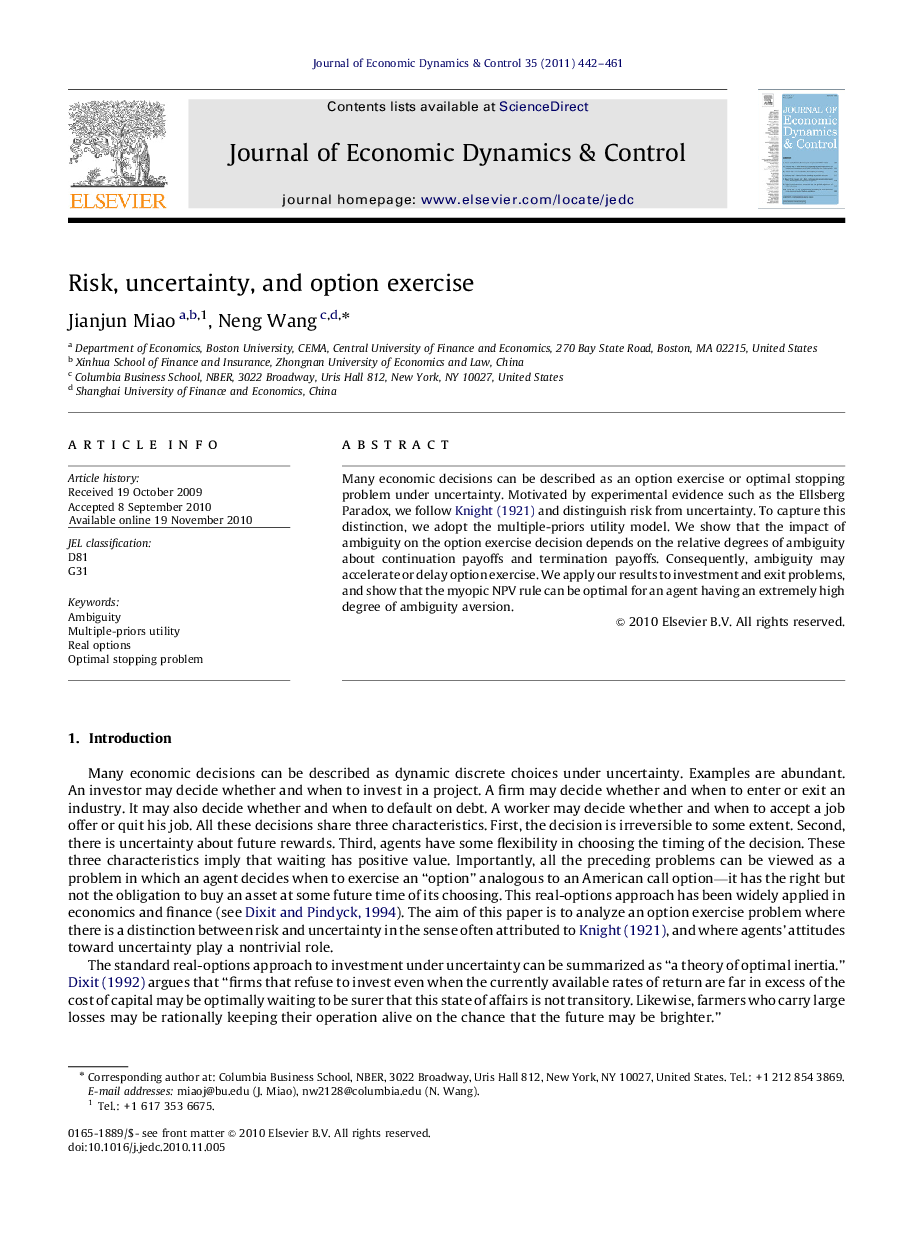| Article ID | Journal | Published Year | Pages | File Type |
|---|---|---|---|---|
| 5099585 | Journal of Economic Dynamics and Control | 2011 | 20 Pages |
Abstract
Many economic decisions can be described as an option exercise or optimal stopping problem under uncertainty. Motivated by experimental evidence such as the Ellsberg Paradox, we follow Knight (1921) and distinguish risk from uncertainty. To capture this distinction, we adopt the multiple-priors utility model. We show that the impact of ambiguity on the option exercise decision depends on the relative degrees of ambiguity about continuation payoffs and termination payoffs. Consequently, ambiguity may accelerate or delay option exercise. We apply our results to investment and exit problems, and show that the myopic NPV rule can be optimal for an agent having an extremely high degree of ambiguity aversion.
Related Topics
Physical Sciences and Engineering
Mathematics
Control and Optimization
Authors
Jianjun Miao, Neng Wang,
